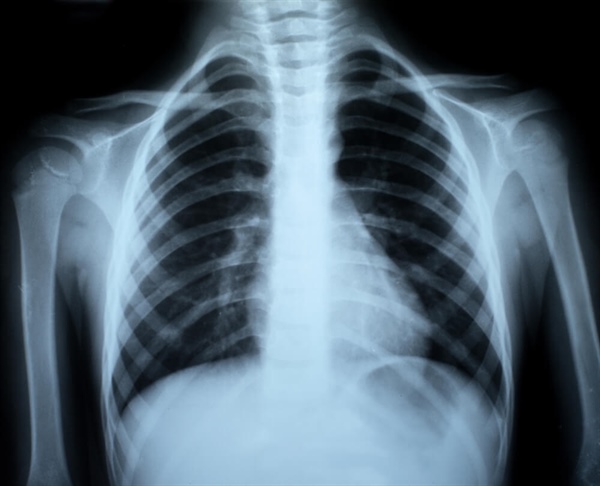Up to 30 per cent of selected medical tests, treatments and procedures in Canada are potentially unnecessary, a new national report reveals.
The report, entitled Unnecessary Care in Canada, was released by Choosing Wisely Canada and the Canadian Institute for Health Information (CIHI) on April 6. The report, based on administrative data, includes measurements on the extent of unnecessary care associated with tests and procedures that span the health system, and also identifies factors that might help to reduce instances of unnecessary care.
“More doesn’t always mean better when it comes to health care. Tests and treatments that are unnecessary are unhelpful and could actually expose patients to harm,” said Choosing Wisely Saskatchewan Coordinator Jennifer Wright. “As well, health system resources are wasted when unnecessary care is provided to patients, resulting in longer wait times throughout the health system.”
Choosing Wisely Canada (CWC) is a national campaign to help clinicians and patients engage in conversations about unnecessary tests and treatments and make smart and effective choices to ensure high-quality care. CWC partners with national clinician speciality societies to develop evidence-based recommendations about tests, treatments and procedures that are unnecessary and offer no value to patients. CWC has released more than 200 recommendations to date.
“Saskatchewan’s health system has identified appropriate care as an improvement priority in its strategic plan in recent years. Collaborative work to ensure patients receive the right treatment at the right time in the right place is continuing province-wide,” said Gary Teare, CEO of Saskatchewan’s Health Quality Council (HQC).
HQC is coordinating regional Choosing Wisely efforts through collaboration with the provincial Appropriateness of Care Program and the Appropriateness of Care Network. HQC is also collaborating with the Saskatchewan Medical Association, the University of Saskatchewan’s College of Medicine, patient and family advisors, and other health system partners to raise the profile of the CWC campaign provincially. HQC was one of the partner organizations that contributed to the development of the new CWC and CIHI report, which focused on eight selected CWC campaign recommendations.
Some highlights from the report include:
- For children and youth in Saskatchewan, Manitoba and B.C., the rates of low-dose quetiapine – likely used to treat insomnia – increased to 186 per 100,000 in 2013-2014 from 104 in 2008-2009. CWC recommends against using this medication in children and youth to treat insomnia.
- In Saskatchewan, Ontario and Alberta, 18 per cent to 35 per cent of patients undergoing low-risk surgery had a preoperative test, such as a cardiac stress test, ECG or chest X-ray. CWC recommendations note that these tests are unnecessary, and are potentially harmful or can delay surgery.
- In Canada, one in 10 seniors uses a benzodiazepine on a regular basis to treat insomnia, agitation or delirium. CWC recommendations highlight the harm associated with long-term use of these medications.
- In Ontario and Alberta, nearly one in three low-risk patients with minor head trauma had a head scan in an emergency department, although a CWC recommendation highlights that this is unnecessary and potentially harmful.
“By setting a baseline for measuring these several recommendations, we can see that there is room to improve care for patients and eliminate waste,” said Dr. Wendy Levinson, Chair, Choosing Wisely Canada, and Professor of Medicine, University of Toronto. “All clinicians want to provide the best quality of care for their patients. With this report, we can now see noticeable regional- and facility-level data that identifies opportunities for improvement and reinforces the concern over resource stewardship across the country.”
“Many Canadians experience care that may be unnecessary,” said David O’Toole, President and CEO, CIHI. “This report is another step toward ongoing standardization of measures and improved data to identify gaps, track improvements and ultimately improve the quality of — and access to — care for Canadians.”
Wright, the Choosing Wisely Saskatchewan coordinator, noted that while the report identifies opportunities for improvement, it also highlights work currently underway in Saskatchewan through the Appropriateness of Care Program:
· Lower-back pain (see page 23 of the report): In 2015-2016, Saskatchewan’s Appropriateness of Care program piloted a checklist for lumbar spine MRI scans in Regina Qu’Appelle Health Region and Saskatoon Health Region, with the checklist implemented provincially as of May 2016. The Appropriateness of Care Program is currently working to improve appropriate ordering of lumbar spine CT scans to reduce duplicate testing using both MRI and CT, as well as to reduce unnecessary CT scans for lower-back pain. A checklist for lumbar spine CT scans has been developed and will be piloted in April 2017.
· Pre-operative testing (see page 43): Preoperative testing before low-risk surgeries was selected as one of the Appropriateness of Care projects in Saskatchewan for 2016-2017. The province is focusing on reducing inappropriate tests and variations across health regions by implementing best practice. In Saskatchewan, facility, physician and procedure factors accounted for 14 per cent of variation in preoperative testing conducted in the province, according to a CIHI analysis. Work is underway in several regional health authorities to standardize preoperative testing.
Wright said the Unnecessary Care in Canada report helps to shed light on what is working well in Canada and what could be improved. She said both clinicians and patients will be interested in the report and the data presented.
“Having this data is essential as we continue working collaboratively to improve the quality and safety of our health care system,” she said.



